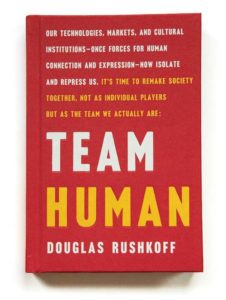What we can expect from Donald Trump and his storm troopers in 2021
3 CommentsPublishing dark matter since 2018
This craft essay and book review was featured at medium.com in May of 2019. In it I conjecture what it might be like to fashion a novel as a fractal. The novel I was thinking of writing was a sequel to my 2018 thriller Turkey Shoot that would feature its female protagonist. With that in mind I began writing Her Own Devices the following month, completing the first draft a year later. It turned out not to be another thriller, as I’d expected, but a crime story. Is it a fractal? Not in any formal sense, but it does feature certain repeating elements. I’m currently fractalizing its fourth revision.
See the original story here (counts as one of three free articles non-subscribers to Medium may view each month).
“What I hope this book now will leave behind: the idea that new patterns like spirals or explosions or vortex streets might open our eyes to other natural shapes underlying our stories, might let us step away from the arc sometimes, slip under or through that powerful wave, glorious as it can be. I hope that other patterns might help us imagine new ways to make our narratives vital and true, keep making our novels novel.”
Jane Alison, Meander, Spiral, Explode: Design and Pattern in Narrative, Catapult, 2018, pages 248-9.
Think of a snowflake forming around a molecule of water clinging to a tiny particle of something, how it blossoms and diverges as other molecules join in, seeking their hexagonal destiny, becoming a perfect thing of beauty. Then think of it melting, its sharp edges blurring, its interstices blotting out until it plops to earth. That’s a story, right there, in full surround. Matter, space and time at play.
Leave a CommentBefore we get going, this is a certificate recently presented to me at the Independent Publishers of New England annual conference for my novel, the…
Leave a Comment
Team Human by Douglas Rushkoff (W.W. Norton, 2019, 256 p. hardbound), ISBN 987-0-393-65169-0, $23.95. Also available in eBook and audiobook formats.
The entities called computers were originally human beings, people like the accounts clerk Bob Cratchit in Dickens’s A Christmas Carol. In the mid-20th century, computers were (mostly) women who worked calculators and slide rules, tasked with tabulating data and solving numerical problems. Nowadays, says Douglas Rushkoff, computers run us as extensions of applications that abuse us for fun and profit. Rushkoff has had it with the soul-sucking “innovation economy”; to retrieve the human agency and dignity that technocracy has usurped, he proposes not a revolution but a renaissance of pre-industrial, even pre-enlightenment, societal values. Rushkoff emerged as an early member of the digerati, but has since been a longstanding critic of those who control digital media and manipulate its users, not to mention capitalism itself. Now a professor of media studies (CUNY Queens), public intellectual, and podcast host, he’s quietly assembling an army of change agents. Their mission is to “challenge the operating system that drives our society” by organizing the (better-educated) masses to throw off their (block) chains by imagining and building human-scale alternatives to giant financial institutions, public corporations, and their enablers. Given how overarching and well-wired global capitalism is, that’s a tall order, but Rushkoff asserts that the battle can be won if we stick together.
Leave a CommentJust in case you don’t know, writing is a bitch. Whatever one writes, be it a story, reportage, poem, novel, job application, or even a…
Leave a Comment